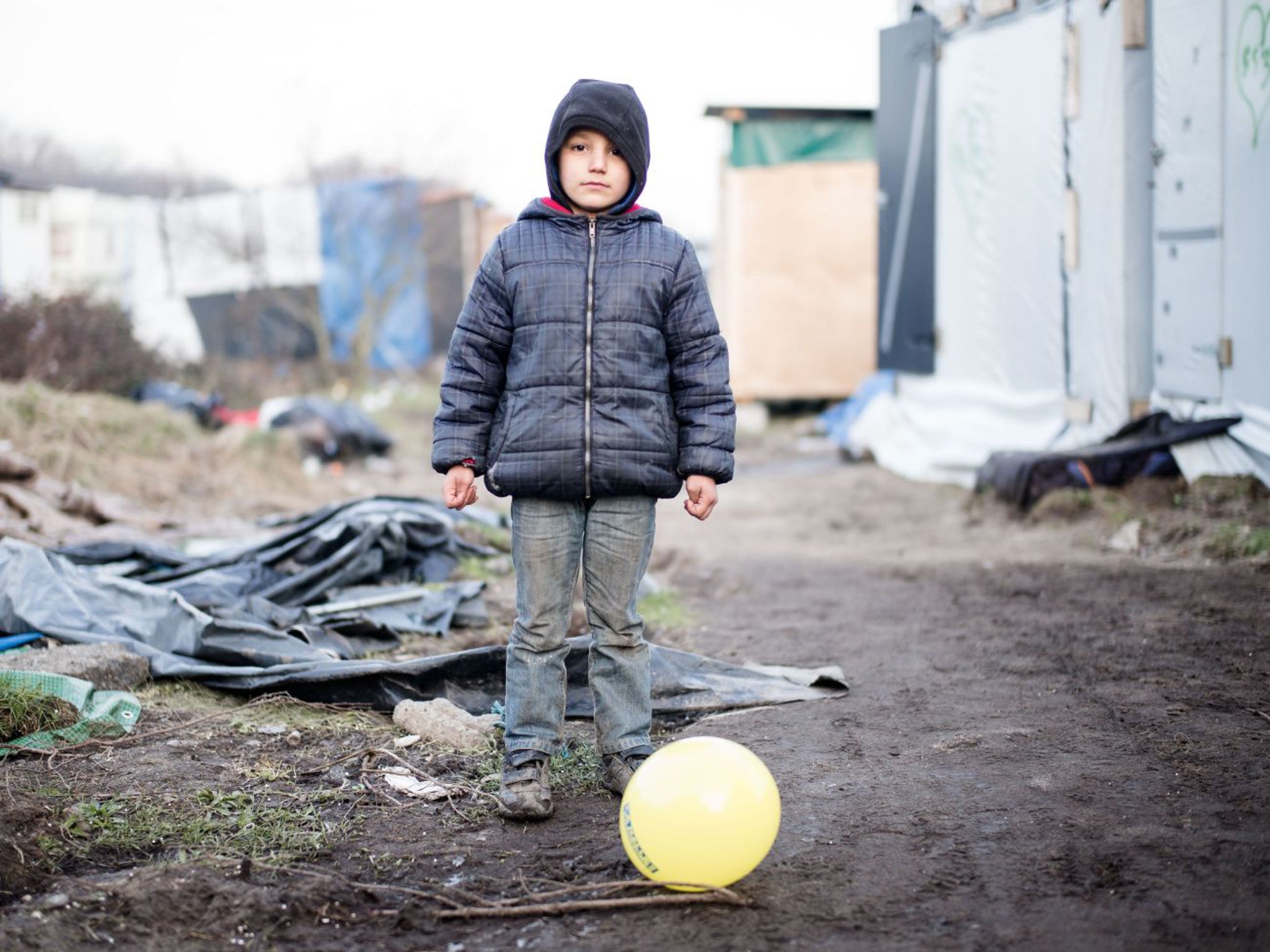Refugee crisis: Young Calais refugees face having their houses demolished
The children have travelled thousands of miles from war-torn countries in the hope of seeking asylum in the UK

About 450 unaccompanied children are to have their temporary homes demolished in the next stage of the Calais refugee camp clearance – amid growing concerns for their human rights and deteriorating mental health.
The children, some as young as 10, have travelled thousands of miles from war-torn countries in the hope of seeking asylum in the UK. Many are orphans.
It is believed that roughly half of the camp will be cleared on 22 February. Between 1,000 and 3,000 people are estimated to live in this area, yet alternative accommodation – in the form of converted shipping containers – has been provided for only 800.
Included within the area marked for demolition is the women and children’s centre. Set up by the volunteer Liz Clegg last year, it provides an important haven within the camp – not least for children with no parents.
Alongside a large tent containing donated toys and teaching equipment, children play on a rudimentary playground. Many refugee families live nearby.
The local police prefecture gave a week’s notice of the clearance plans. Volunteers have expressed grave concern at the lack of official provision for the unaccompanied children in the upheaval. Over the past six months there have been at least half a dozen incidents of missing children.
“Where is the UN? Why are there no NGOs here?” Ms Clegg asked. “Why are volunteers with no funding expected to deal with this situation?”
Medecins sans Frontieres, Medicines du Monde and a handful of charities help run the camp. But for the most part it has been left to volunteers. The UNHCR, Red Cross and other agencies have not been given the necessary invitation by the French government to enter the camp. Save the Children is believed to be in a similar position.
“The UN have guidelines, the French have guidelines,” Ms Clegg said. “We are not seeing them put into action. The only conclusion we can draw is they do not class these children as humans.”
Any refugee who has direct family in a country can ask to have their asylum case transferred there. Children’s claims are given priority. Last month, the Citizens UK campaign group co-ordinated lawyers in the test case of four young boys who successfully entered the UK under this legislation.
The organisation has identified a further 200 unaccompanied minors with direct relatives in the UK. However, after the Home Office appealed against the test case, all requests for a transfer of asylum have been put on hold.
Rev Dr Simon Cuff of Citizens UK said: “The UK has a legal and moral duty to reunite those with their families in this country and to encourage the French authorities to process the claims of those seeking asylum quickly.
“No human being, especially a child, should have to endure the awful conditions of the jungle for any length of time, even more so when they have been fleeing the horrors of conflict and war. We ask the Government to do their legal and moral duty as quickly as possible.”
Stress and anxiety disorders are increasingly common among children and adults at the camp, as are outbreaks such as scabies. “We are watching these children lose their minds and nobody is doing anything,” says Joe Murphy, a director of the Good Chance organisation which works with many of the older children.
One such example is Noorallah, 15, who has been in the camp for seven months. He left Afghanistan when the Taliban bombed his village, destroying his school and killing his father.
The journey overland to France took him a year. He recited the countries through which he travelled by rote: “Pakistan, Iran, Turkey, Bulgaria, Serbia, Hungary, Germany, Belgium”.
Crossing the Iran-Turkey border, he spent six hours in the boot of a car with four other children. In Bulgaria, he and his friends were set upon by police dogs.
Last month, bulldozers cleared a third of the Jungle camp, demolishing temporary structures along with three mosques and a church. However, the move to the converted shipping containers, accessed by a digital handprint, has been met with resistance from many refugees who worry that giving such information to the authorities could impede asylum claims.
One thing is clear: nobody believes life in the Jungle should continue. “Nobody should have to live here. It is an awful place,” said Mr Murphy. “All we are doing is calling on authorities to make sure things are done in a timely manner and that these children are given the legal and medical treatment to which they are entitled.”
Subscribe to Independent Premium to bookmark this article
Want to bookmark your favourite articles and stories to read or reference later? Start your Independent Premium subscription today.

Join our commenting forum
Join thought-provoking conversations, follow other Independent readers and see their replies